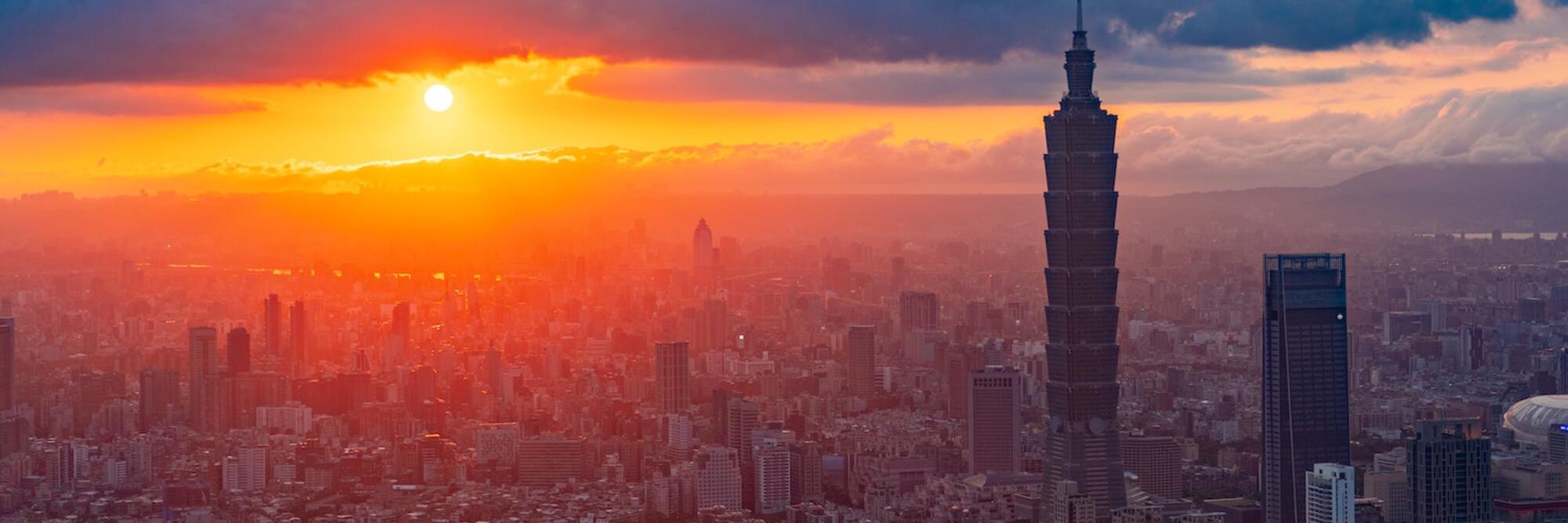Christel is a Filipina expat who moved to Taiwan in January 2012. Although she misses her family and friends (and especially her mom's and grandmother's cooking), and Filipino foods, Christel enjoys the convenience of life in Taipei, especially the fast and efficient public transport.
Learn more about Taiwan in the Expat Arrivals Taiwan Guide or read more interviews with expats in Taiwan.
About Christel
 Q: Where are you originally from?
Q: Where are you originally from?
A: Cavite, Philippines
Q: Where are you living now?
A: Taipei, Taiwan
Q: When did you move to Taiwan?
A: January 2012
Q: Did you move to Taiwan alone or with a spouse/family?
A: Alone
Q: Why did you move; what do you do?
A: I'm currently working as a technical writer for an IT company.
Living in Taiwan
Q: What do you enjoy most about Taipei? How would you rate the quality of life compared to your home country?
A: Taipei's a very convenient place to live in, and I particularly like the Taipei MRT. It's very efficient and even allows me to bring my bike to distant places. I think living in Taipei is easier compared to Cavite and Manila, Philippines. It's also safer.
Q: Any negatives? What do you miss most about home?
A: I miss my family and friends the most. I also miss a lot of Filipino foods, especially my mom and grandma's cooking.
Q: What are the biggest adjustments you had to make when settling into expat life in Taipei? Did you experience any particular elements of culture shock in Taiwan?
A: It's funny because I thought it'd be easy for me to adjust since Taiwan is quite near to the Philippines. Also, we have plenty of Chinese folks living in the Philippines. But when I got here, I still had to make quite a big adjustment in terms of relating with the locals and connecting to them on a more personal level. I was particularly interested to see how the concept of guanxi works.
Q: What's the cost of living compared to home? What is cheap or expensive in particular?
A: I think here it's lower. If you set aside the currency exchange, housing is better here if you are renting compared to the Philippines because the utilities are lower priced without compromising quality. But I find the food a bit expensive compared with the Philippines.
Q: How would you rate the public transport in Taipei? What are the different options? Do you need to own a car?
A: I don't think I'll need to own a car. I'm quite happy with the MRT alone and the use of YouBike. I love biking, so I really appreciate that there's this public bike access that we can use. I think the buses are also convenient, but I wish they'd have English signs too so they'd be easier to take for foreigners.
Q: How would you rate the healthcare in Taipei? Have you had any particularly good/bad experiences with regard to doctors and hospitals? Are there any hospitals you would recommend?
A: I've only tried going to Shinguang Hospital, and the experience was pleasant. The staff was accommodating, and the physicians and nurses were able to converse in English. The waiting time also didn't take long when I needed to get my medicines. The expense is worth it because it covers the doctor's fees and medicines. I think the healthcare here is quite good, and the National Health Insurance is a worthwhile investment.
Q: What are the biggest safety issues facing expats living in Taipei? Are there any areas expats should avoid?
A: I think Taipei is a pretty safe place. As long as you are following the rules and avoiding drunks at night (which I think most cities have anyway, haha), you'd get by fine.
Q: How do you rate the standard of housing in Taipei? What different options are available for expats?
A: It can be expensive depending on the type of accommodation and also the area. In Taipei, rent can get expensive as it nears highly urbanised areas. You can find a cheaper alternative over at New Taipei City though if you work in Taipei, you need to consider the commute. Rent can go as low as 6,000 NTD to as high as maybe 30,000 NTD monthly, and choices range from being a bed spacer in a home, a studio room, a condominium unit or renting an entire house.
Q: Any areas/suburbs you'd recommend for expats to live in Taipei?
A: I would actually recommend Xindian because I think it's still got more, cheaper alternatives, and it's less saturated than the Taipei area. But if you live here and work in Taipei, I think you need to make sure you live near the MRT station if you don't have your own means of transport.
Q: What are the schools like? Any particular suggestions?
A: There are public schools and private international schools. I guess it all depends on what you want your kids to learn and the kind of culture you want to expose them to. The private international schools are quite expensive, but I think it's worth trying if you want to expose your kids to cultural diversity.
Meeting people and making friends in Taipei
Q: How tolerant are the locals of foreigners? Is there any obvious discrimination against particular religions or women etc.?
A: I didn't experience any discrimination in terms of religion. The locals I met are even interested in some traditions that are rooted in the Catholic religion. Well, I also don't feel any discrimination as a woman, but I think there's a local standard for how women are supposed to be like here.
Q: Was it easy meeting people and making friends? How did you go about meeting new people?
A: It's easy to make friends because the Taiwanese are friendly, more so if you are a foreigner. But the challenge is to turn those friendships from casual acquaintances to trustworthy friends. It helped that I was interested to learn more about their culture and also the language. The locals appreciate it when you make an effort to learn their language. Most of my friends are actually locals though I have a few expat friends.
Working in Taipei
Q: Did you have a problem getting a visa or work permit for Taiwan? Did you tackle the visa process yourself, or did you enlist the services of an immigration consultant?
A: Back home, I did all the paperwork myself and was assisted by our company's HR staff. The process ran smoothly, especially here in Taiwan, when I finally filed for my ARC. It helped that our company processed the legal documents I need here for me and just asked me to submit the requirements.
Q: What's the economic climate like in Taipei? Do you have any tips for expats looking to find a job there? Which resources did you find most useful?
A: I haven't really tried finding another job here or a part-time job other than my current work. But I guess it all depends on your competency and salary expectations. I used to see ads on Tealit.com and Forumosa.com but never really tried submitting my resume.
Q: How does the work culture differ from home? Do you have any tips for expats doing business in Taipei?
A: It's very different. I will summarise it in one word—guanxi. My only advice for expats is to learn about this. It is very important here.
And finally…
Q: Is there any other advice you would like to offer new expat arrivals?
A: Prepare for the unexpected and keep your eyes open—literally and figuratively. Have a keen sense of adventure and learn the culture. It's important to learn how the locals live for you to survive in the long run. It's also good to take the opportunity to learn Mandarin since Taiwan kept the traditional way of writing and reading Chinese characters. Plus, learning Mandarin is another way to help you make friends and see the ins and outs of Taipei, as guidebooks or travel blogs may not be able to present to you.
~ Interviewed January 2014



